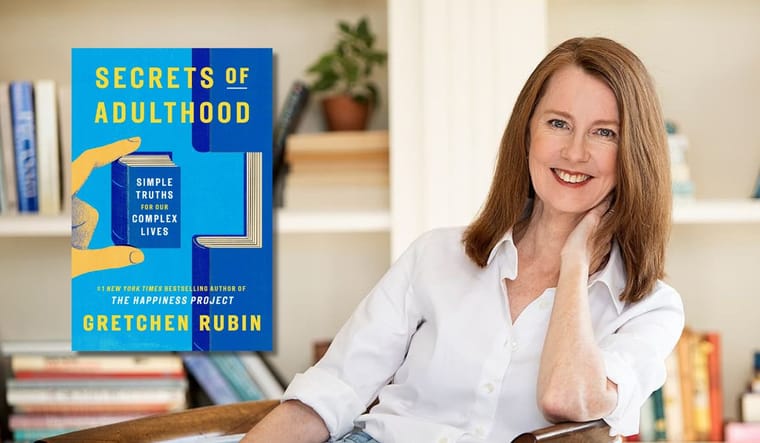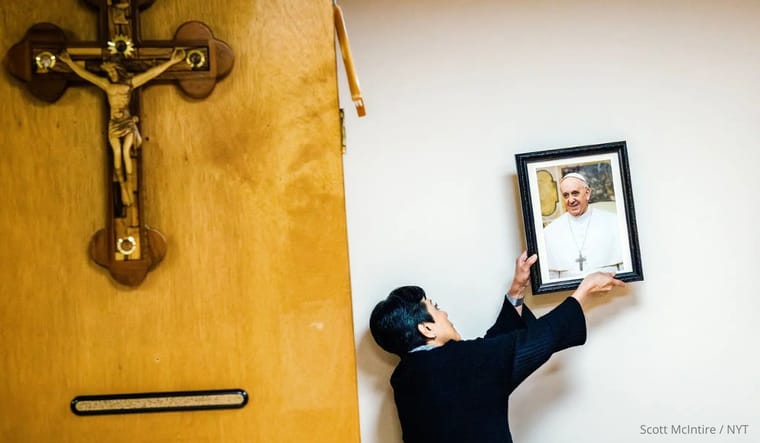Grief and Loss Expert David Kessler Helps Us Make Sense of the Collective Grief We’re All Feeling Right Now
The grief at this moment is immeasurable. Grief is seizing the families of the at-least 19 children and two teachers killed by a gunman in a Texas elementary school. Grief is permeating their friends and loved ones. Their colleagues and acquaintances. Grief is gripping the families of those killed in a shooting in a Buffalo supermarket. And grief is grasping those of us who did not even know the victims or families.
It is collective.
To gain some sense of understanding around this, we spoke with David Kessler. An expert on grief and loss, and a dear friend of The Sunday Paper's, Kessler has experienced great loss in his life, including his witnessing of a mass shooting while his mother was dying in a hospital across the street. Then after decades of helping others in grief, his younger son died unexpectedly. Kessler provides sound wisdom around this collective grief. As he tells us, grief is a personal journey, one to which “we all react differently.”
We hope his words offer some grounding—for right now and tomorrow.
A Conversation with David Kessler
David, what is important to know about the collective grief we—as a society, a nation, and a world—are feeling?
I would begin by recognizing that collective grief is real. So many people have said that there’s this new phenomenon of collective grief and I remind them it isn't new. People may feel that this collective grief began with Kobe Bryant’s death or John F. Kennedy's death or Martin Luther King Jr. or Abraham Lincoln. But even before all of that we would gather in the town square, we would gather in the village, and we would talk about tragedies—and sometimes those were tragedies of people we didn't know.
Collective grief can be confusing because some of us are more affected than others. Some people may say, ‘What's the problem? You didn't even know them.’ Then there are other people who are deeply affected. What I want people to understand is that collective grief is the grief that many of us might be feeling at the same time as a reaction—which we all are right now—and that grief connects and reminds us of our life.
We want to go to a grocery store, a school, or a mall. We want our kids to go safely to school. All these horrible events in the world are deeply triggering for people and they remind us of our lives. These moments also remind us that we're more connected than we think we are.
What about the meaning in all of this? In your work you’ve said that of course there isn’t meaning in a senseless act of violence. But there can be meaning found in ourselves afterward.
Part of the reason I came to this work is from that shooting that happened during my own childhood. I'm a living example of the meaning of what we do after. What are we going to do after this? We’re all aware that the days of thoughts and prayers on Facebook are not enough. This is a moment of: Who are we going to be and what are we going to do? Is this going to be another meaningless tragedy? I pray for the future when I look back and say: That was the moment everything changed.
This is another horrific opportunity to find a different meaning than the one we did before.
What about collective trauma? The way these children and teachers lost their lives is unconscionable. What is important to know about the difference between collective trauma and collective grief?
An example of public grief is Betty White dying. She had a long life. One that was full of life and we're sad to miss her. There's no trauma associated with that. But contrast that with Kobe Bryant’s death. Or look at 9/11, Sandy Hook, and the Tops supermarket shooting in Buffalo and now this horrific tragedy of kids being gunned down in schools—these are traumatic deaths. A psychological trauma is the unique individual experience of an event, a series of events, or enduring conditions, in which the individual's ability to integrate their emotional experience is overwhelmed. The things we’re not prepared to deal with psychologically. These are traumatic deaths, so we must see them as both, trauma and grief. There's the loss and there's the way it happened, when it happened and to who it happened.
We don't give trauma it's due around grief. We often think of situations as this is traumatic and this is grief and yet we forget about traumatic grief. And they occur together.
I, unfortunately, have a lot of bereaved spouses or parents in my online groups whose loved ones died unexpectedly. What can often happen is, because of the trauma, we get stuck in the traumatic moment. The work is to never leave the grief, because grief is part of the love, but to work through that trauma. My goal is to help people come to post-traumatic growth in time versus post-traumatic stress.
How can we support and hold space for each other right now?
It’s important to recognize that this is a huge stressor in our country. We all react differently to grief. We need to honor everyone else's way of doing it. It’s important for us to know and to help people recognize that what they're feeling is okay.
There will be some people who are going to want to take action. There will be others who want to talk about their feelings. There will be others who will want to deny this. I always remind people in grief that there's no ‘right’ way to do this, but the power is always in you. The power is in you deciding what you are going to do in response to this grief.
This is brutal, what happened. I can’t help but speak as a father when I see the faces of those parents. How can this continue? This is a moment to turn towards the reality of this world and what is happening.
What we run from pursues us. What we face transforms us. I pray that this is the transformative moment in honor of those 21 people and counting.
What is appropriate for parents and guardians in terms of showing and doing grief around children?
It’s an illusion to think that our kids don't know about this. That they don't see it or hear about it. They do. We have to talk about it. We have to give it words for them. We want to talk about it in an age-appropriate manner and reassure them of what we are doing to make our world safer. It’s similar to what I'm saying for adults. We might want to show our kids that we're taking action. This could be lighting a candle in honor of those children. It could be chipping in a dollar of their allowance to put toward a charity that's important to your family. This is so that they see in the face of tragedy that we acknowledge, we take action, and we’re not passive victims. It’s important for children to see how we can be proactive.
Another thing of importance is to validate their feelings. It can be easy to say, ‘That’s not happening at your school. That’s far away.’ But rather, we need to acknowledge by saying, ‘Of course this scares you, Mommy’s afraid or Daddy's afraid, too and that's why we're doing things to keep each other safe.’
David Kessler is one of the world's foremost experts on grief and loss, and the author of six books. Kessler’s experience as a child witnessing a mass shooting while his mother was dying in a hospital helped him begin his journey. Kessler has taught physicians, nurses, counselors, police, and first responders about the end of life, trauma, and grief. He facilitates online grief groups and a grief educator certificate training for counselors, coaches and peer to peer supporters. However, despite his vast knowledge on the subject, his life was turned upside down by the sudden death of his 21-year-old son. It inspired him to write his latest book, Finding Meaning: The Sixth Stage of Grief. You can learn more about Kessler and garner his wisdom on grief at www.grief.com, and by listening to his new Spotify original podcast, ‘Healing with David Kessler’.
Please note that we may receive affiliate commissions from the sales of linked products.



